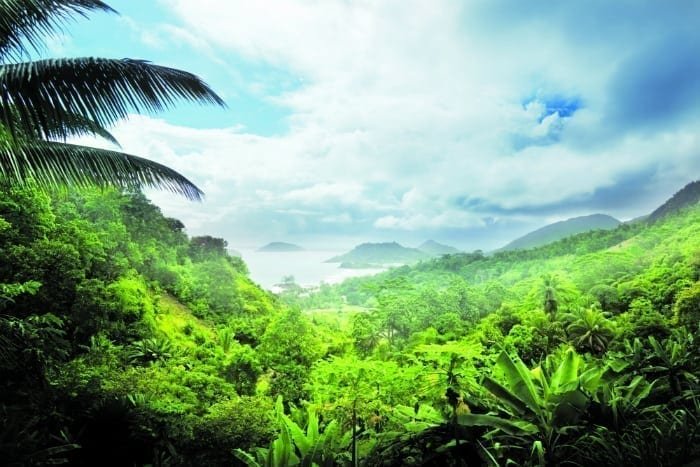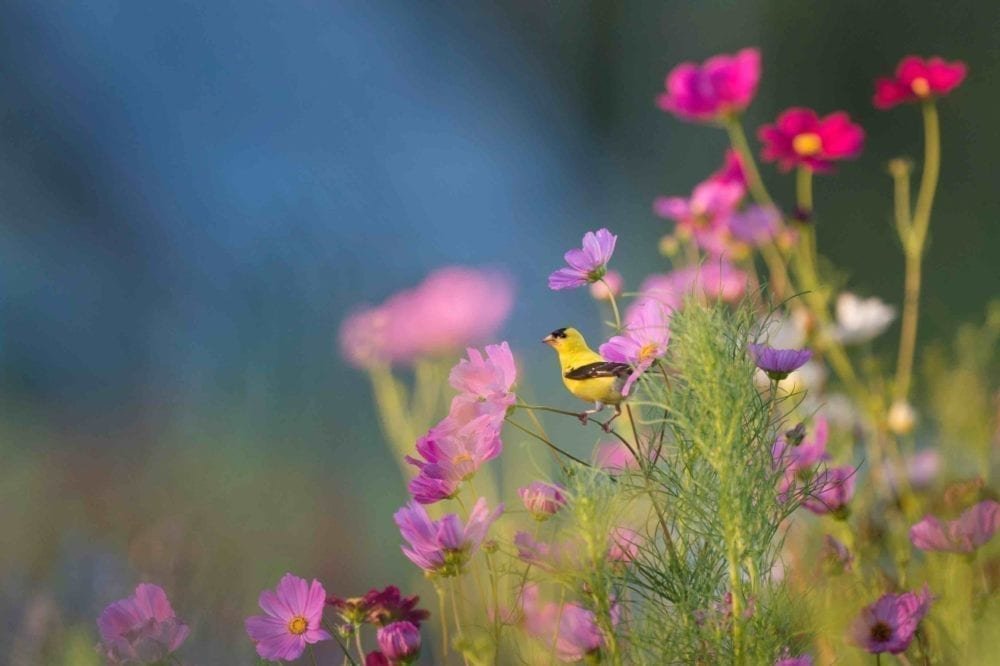This article first appeared in our summer ’18 issue of MyGreenPod Magazine, The Natural Revolution, distributed with the Guardian on 03 Aug 2018. Click here to subscribe to our digital edition and get each issue delivered straight to your inbox
01 August marked Earth Overshoot Day 2018: the day on which humans used more from Nature than our planet is able to regenerate in the entire year. We’re currently using 1.7 Earths; we’re overfishing, overharvesting forests and emitting more carbon dioxide into the atmosphere than ecosystems can absorb.
The date has been creeping forward since 1970, when the Global Footprint Network estimated that, for the first time, we used more ecological resources and services than Nature was able to restore. Natural processes – from water filtration to crop pollination – underpin all human activities: they are the life support systems upon which our growth, wellbeing and prosperity depend. If we don’t get our consumption in check our days as a species will be numbered.
Prices vs value
In 2011 Defra published a guide ‘to provide an introduction to the valuation of ecosystem services’,which are understood as the benefits we receive from Nature. The idea of putting a value on ecosystems was interpreted by many as an attempt to commodify the natural world, but natural capital proponents do not advocate the ‘pricing of Nature’. Instead, their core assertion is that prices have failed to reflect the true value of the natural world, and that the economic systems we’re using are broken.
A natural capital approach works to illuminate Nature’s often hidden value – whether it be economic, social, environmental, cultural or spiritual, and whether this value is expressed in qualitative, quantitative or monetary terms. The important point is that price and value aren’t interchangeable; traditional prices almost never reflect the immense value of Nature.
The moral question
Some take the position that it’s immoral to ascribe any tangible value to the natural world. But when we buy almost any physical product we are, in a sense, commodifying Nature by signifying our willingness to pay a designated price in exchange for ownership of natural materials, organisms and their derivatives.
In this way, much of Nature is already commodified, and has been for thousands of years. A natural capital approach, far from abetting this neoliberal model, turns it on its head. While there are many prices for the products that are created from Nature and natural derivatives, the value of leaving the natural world intact is often far less understood – or worse, regarded as zero. Framing these resources as natural capital and working to illuminate their value is a way of recognising the value of leaving Nature intact.
Much of the debate comes down to language. In a bid to address some people’s unease with the term ‘ecosystem services’, in January 2018 30 global experts associated with the Intergovernmental Platform on Biodiversity and Ecosystem Services (IPBES) suggested a move away from the term, and towards ‘Nature’s Contributions to People’. They argued the latter was a more inclusive term that bypassed perceived failings of the ecosystem services framing.
IPBES chair Sir Robert Watson said, ‘Nature underpins every person’s wellbeing and ambitions – from health and happiness to prosperity and security. People need to better understand the full value of Nature to ensure its protection and sustainable use.’
Ultimately the message remains the same, irrespective of the language used: we fundamentally depend on Nature in a multitude of ways, and if Nature continues to be degraded, we will all suffer.

Going mainstream
In March 2007, environment ministers from the G8+5 countries met in Potsdam, Germany to propose a proper analysis of the global economic benefit of biological diversity, the costs of the loss of biodiversity and the failure to take protective measures versus the costs of effective conservation. The result was the launch of a global TEEB (The Economics of Ecosystems and Biodiversity) study, designed to make Nature’s values visible.
As well as getting to grips with the inherent value of our natural bounty, the goal of TEEB is to embed the values and benefits of biodiversity and ecosystem services into decision-making at all levels.
The TEEB for Business Coalition – now the Natural Capital Coalition – was launched in December 2012. Its purpose was to study and standardise natural capital approaches, and enable its valuation and reporting in business. The goal was to engage key stakeholders from business, government and civil society to join a leading-edge collaboration that would shape the future of business thinking and action on natural capital. TEEB for Business evolved into the Natural Capital Coalition in 2014; it had become clear that the entire system – not just business – needed to come together to tackle these issues and embed natural capital thinking in mainstream discourse.
Joining the dots
Many organisations have a policy on water, another on energy, another on biodiversity, another on forests – the list goes on. Often the people working in these areas don’t talk to each another; in some cases they are actually in competition for budget allocation. A policy on one of these areas, without an understanding of how it connects with the others, means we’re often playing a four-dimensional game of tug of war, attempting to keep interconnected systems in balance without understanding the ways in which they work and connect.
The natural world and ecosystems are fundamentally symbiotic, so our approach to their conservation and restoration must be similarly interconnected if it is to succeed.
A systems approach allows businesses to understand fundamental interdependencies, tipping points and thresholds. If farmers deplete the local water table, the health of local vegetation may be may affected; this could cause insect habitats and populations to decrease, affecting the pollination services necessary for the success of the farmers’ crops.
 Play Video about This Rock Might Just Save The World
Play Video about This Rock Might Just Save The World Play Video about Play 2 hours of rock
Play Video about Play 2 hours of rock Play Video about Play 2 hours of brook
Play Video about Play 2 hours of brook Play Video about Play 2 hours of sheep
Play Video about Play 2 hours of sheep













































